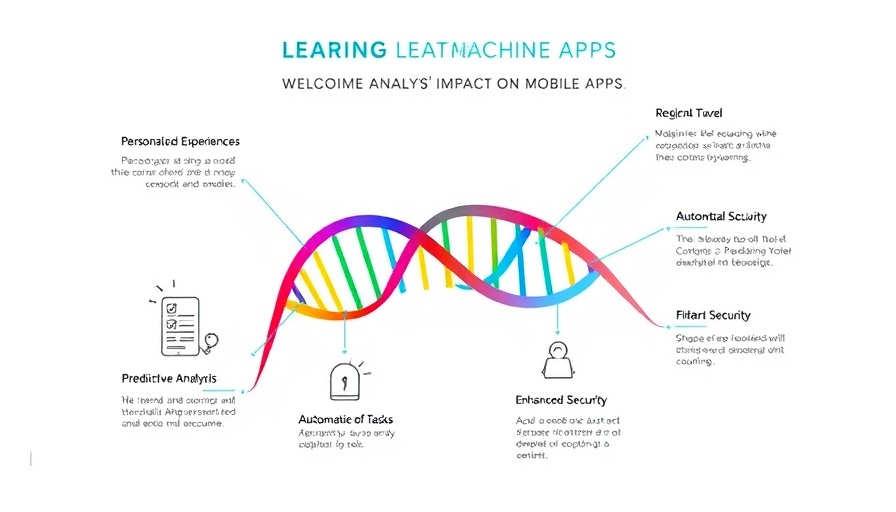
The Rise of Machine Learning in Mobile App Development
The world of mobile app development is evolving rapidly, with machine learning emerging as a game-changer in how apps are designed and function. Today, machine learning enables apps to learn from user interactions, adapting and improving their functionality in real-time. This capability allows developers to create more personalized and intuitive experiences for users, resulting in higher satisfaction and engagement.
Understanding Disruption in Development Practices
Traditionally, mobile app development relied heavily on manual coding and predefined user journeys. However, with the integration of machine learning, apps can analyze vast amounts of data, identify patterns, and automate processes that previously required human intervention. This shift not only decreases development time but also enhances the overall quality of mobile applications.
The Benefits of Machine Learning Applications
Machine learning applications offer numerous benefits that significantly enhance mobile app functionality. They provide capabilities such as predictive analytics, which can forecast user behaviors or trends based on collected data. Businesses leveraging these insights can adapt their marketing strategies effectively—improving conversion rates and optimizing user journey experiences.
Examples of Machine Learning in Action
Many businesses have started harnessing machine learning technology in their apps. For instance, fitness apps like MyFitnessPal use machine learning to tailor recommendations based on user goals and activity levels. E-commerce platforms, such as Amazon, analyze customer preferences to offer personalized product suggestions, boosting sales.
The Future of Mobile App Development
As more companies recognize the advantages of incorporating machine learning, the future landscape of mobile app development promises to be dynamic. It opens doors for innovations like virtual assistants and improved user interface designs. Furthermore, the application of machine learning can lead to enhanced user experience optimization, resulting in apps that anticipate user needs rather than simply responding to them.
Challenges and Considerations
While machine learning brings forth exciting opportunities, there are also challenges to consider. Data privacy concerns are paramount as businesses implement strategies to collect and analyze user data. It is essential for app developers to navigate these waters carefully, ensuring compliance with regulations such as GDPR while fostering customer trust.
What this Means for Digital Marketing
Machine learning's influence extends beyond app development into digital marketing strategies. With improved targeting and personalization, businesses can engage in more effective campaigns. From chatbots that optimize customer interactions to data-driven marketing efforts that enhance decision-making, the combination of machine learning and digital marketing is poised to redefine how brands connect with their audiences.
As we embrace this technological wave, professionals, business owners, and marketers should prepare for transformation in their strategies. Whether it’s understanding SEO updates or refining content marketing strategies, adapting to the growing role of AI and machine learning is crucial for continued success in a competitive landscape.
 Add Row
Add Row  Add
Add 




Write A Comment